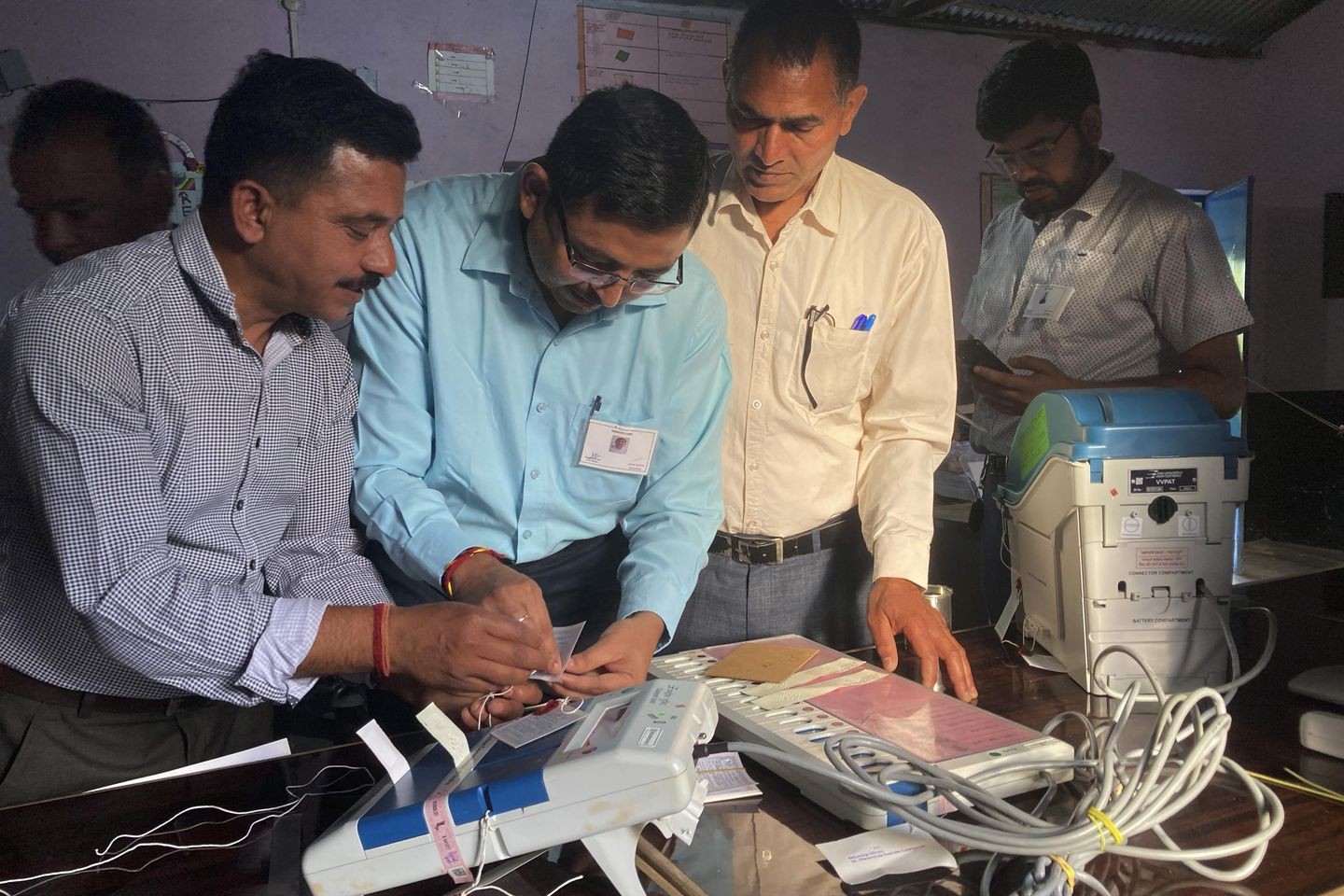The national election in India, which has spanned six weeks, is seen as a referendum on Prime Minister Narendra Modi’s decade in power. The election, which is the largest democratic exercise in the world, concluded on Saturday with the final phase of voting. Modi, a Hindu nationalist leader, has been in power for ten years and is seeking re-election amid a backdrop of economic challenges and social tensions in the country. The election has been closely watched both within India and internationally, as the outcome will have far-reaching implications for the future direction of the country.
Throughout the campaign, Modi has touted his government’s achievements in economic development, national security, and social welfare programs. He has also emphasized his Hindu nationalist agenda, which has raised concerns among minority communities in India. Modi’s main challenger is Rahul Gandhi, the leader of the Congress party, who has criticized Modi’s economic policies and accused him of failing to address issues such as unemployment and farmers’ distress. The election has been marked by intense campaigning, with both Modi and Gandhi holding rallies across the country to mobilize support for their respective parties.
The election has also seen a number of contentious issues come to the forefront, including religious tensions and social divisions. Modi’s government has been criticized for its handling of communal violence and its promotion of a Hindu nationalist agenda, which has alienated many minority communities in India. The election has thus become a battle for the soul of the country, with voters having to choose between Modi’s vision of a strong, Hindu-majority India and Gandhi’s more inclusive, secular approach.
The final phase of voting in the election saw millions of Indians cast their ballots across several states, with turnout reported to be high in many areas. The election has been closely watched by international observers, who see it as a test of India’s commitment to democracy and pluralism. The outcome of the election is expected to have far-reaching implications for the country’s future, with many analysts predicting a close race between Modi’s Bharatiya Janata Party (BJP) and the Congress party.
As the results of the election are awaited, both Modi and Gandhi have expressed confidence in their respective parties’ chances of victory. The election has been a closely fought contest, with both parties making last-minute appeals to voters and mobilizing their supporters to turn out to vote. The outcome of the election will not only determine the future of India’s leadership but also the direction the country will take in the coming years. With the stakes high and tensions running deep, the election has captured the attention of the nation and the world, as the fate of one of the world’s largest democracies hangs in the balance.









